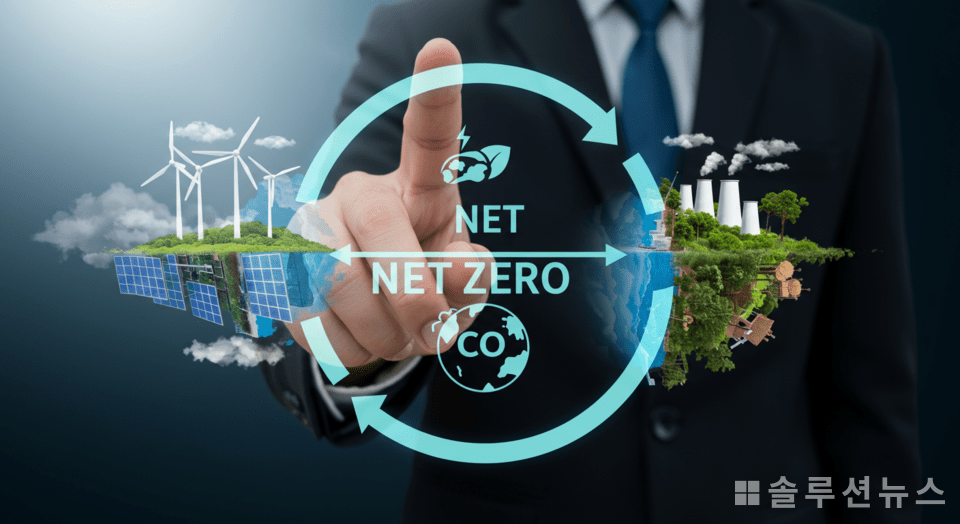Carbon neutrality refers to reducing greenhouse gas emissions to the maximum extent possible and then absorbing or removing the remaining emissions to make the net emissions in the atmosphere zero. This is called “Net Zero” in English. It is a method of offsetting greenhouse gases, including carbon dioxide, emitted into the atmosphere through human activities.
The main cause of climate change is the increase in greenhouse gases, with carbon dioxide being the most representative. Carbon is emitted in all processes of daily life, including the use of fossil fuels, industrial activities, transportation, and electricity consumption. When this carbon accumulates in the atmosphere, it causes the average global temperature to rise. As a result, problems such as abnormal weather conditions, rising sea levels, and ecosystem collapse occur.
Carbon neutrality is a key strategy to prevent this climate crisis. It is not merely an environmental protection issue but a matter of survival. Major countries, including the European Union, the United States, and Japan, have set goals to achieve carbon neutrality by 2050. Korea also declared 2050 carbon neutrality in 2020 and strengthened its Nationally Determined Contributions (NDC).

The government is pursuing the realization of carbon neutrality through improving energy efficiency, transitioning to renewable energy, reducing industrial carbon emissions, and expanding absorption sources. Major means include building insulation, distributing high-efficiency electrical devices, converting to electric vehicles, restoring forests, and adopting carbon capture and storage (CCS) technology.
Citizens’ roles are also crucial. Saving energy on heating and cooling, using public transportation, reducing meat consumption, and refraining from using disposable products are practices that contribute to reducing carbon. Companies need to expand ESG management and invest in carbon emission reduction technologies. The government should transparently disclose reduction results and continually improve relevant systems and budgets.
Carbon neutrality is not a short-term task. It requires changes in industrial structures, energy systems, and consumption habits. However, if we do not start now, there will be no future. Carbon neutrality is not an option for the planet, but an obligation for the next generation.